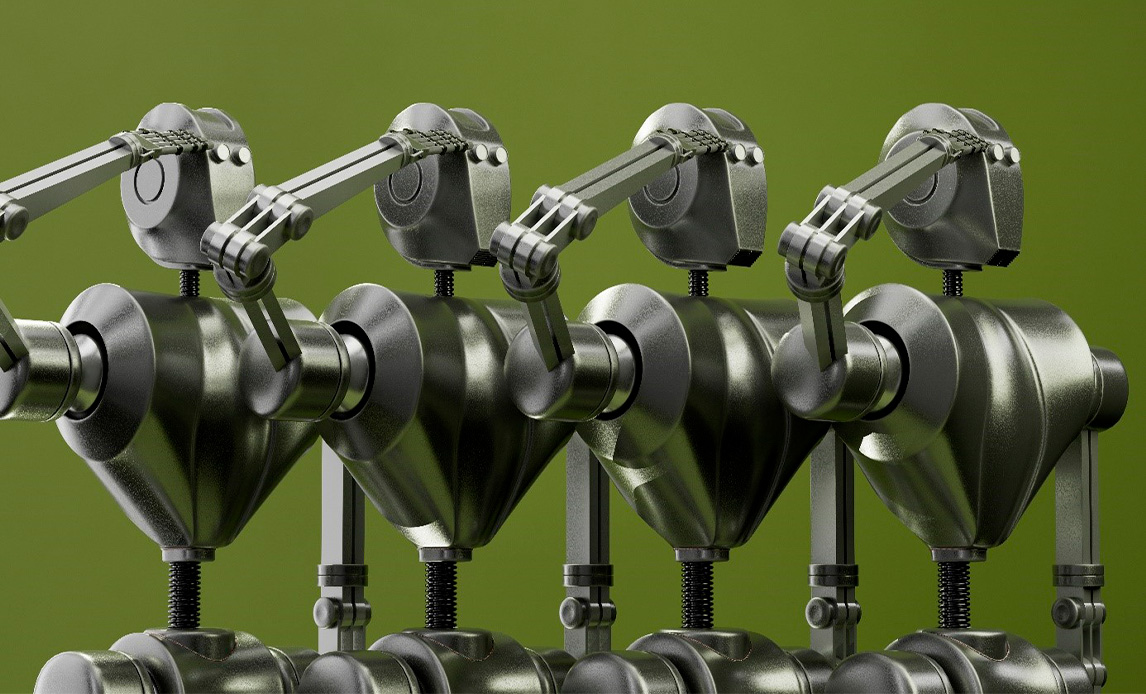Overblik
Uddannelser
Efteruddannelse
Skoler
The Royal Danish Defence College invites you to an exciting research seminar that explores the challenges and risks associated with the proliferation of military AI technologies on the modern battlefield.

Foto: Jake Lomachevsky
The emergence of Artificial intelligence (AI) technologies is not only transforming society. It is also reshaping war. On the one hand, AI technologies promise to make militaries more efficient and enable better decision-making on the battlefield. On the other hand, critics have pointed to these systems’ inherent biases and lack of transparency as jeopardising their legitimacy.
Framed by these observations, this research seminar explores the promises and pitfalls constituted by the rise of AI technologies in war and military affairs. Among the questions that will be explored are: What are the key scientific ideas and technological developments that frame the emergence of military AI? What ethical challenges does these new technologies pose for modern militaries? And how can and should military AI be regulated by states and international institutions?
To answer these questions, the Royal Danish Defence College welcomes three internationally renowned researchers. Together, they offer novel historical and critical perspectives on the development and use of AI in war that challenge the taken-for-granted and encourage critical reflection. In other words, we can’t promise that you will agree with everything that will be said (in fact, we are pretty sure you won’t) but we can promise a day full of enlightening discussions and new insights into the rapidly developing field of military AI.
| 09.30 | Registration, mingle and coffee |
| 10.00 | Welcome address by Henrik Breitenbauch (Dean, Royal Danish Defence College) |
| 10.15 | Keynote I: Ghosts in the War Machine - The past, present and future of military AI (Antoine Bousquet, Swedish Defence University) |
| 11.00 | Keynote II: The ethics of military AI - Questioning the possibility of meaningful human control (Elke Schwartz, Queen Mary, University of London) |
| 12.00 | Lunch break |
| 13.00 | Keynote III: The race to regulate - Key challenges for the governance of military AI (Ingvild Bode, University of Southern Denmark) |
| 13.45 | Coffee break |
| 14.00 | Panel debate: TBA |
| 14.45 | Closing remarks |
Antoine Bousquet is Associate Professor at the Swedish Defence University. Among a host of issues, much of his research focuses on how key scientific ideas and technological developments have transformed war from the past to the present. Antoine is the author of “The Scientific Way of Warfare: Order and Chaos on the Modern Battlefield” and his work has appeared in numerous international journals across a wide range of fields, including International Relations, War Studies, and Security Studies.
Elke Schwartz is Reader in Political Theory at Queen Mary, University of London. Her research focuses on the ethics and politics of new technologies on the modern battlefield. Elke is the author of book “Death Machines: The Ethics of Violent Technologies” and a member of the International Committee for Robot Arms Control. Her work has appeared in numerous international journals, and was recently cited in a report by The House of Lords, which advises the British Parliament on the risks and regulatory challenges related to military AI.
Ingvild Bode is Associate Professor at the Department of Political Science, University of Southern Denmark. She is the Principal Investigator of the ERC-funded research project AUTONORMS, which focuses on autonomous weapons systems and their impact on policy processes and the formation of international norms. Ingvild has published extensively on these and other issues in numerous journal articles and books, including her recent research monograph “Autonomous Weapon Systems and International Norms” (co-authored with Henrik Huelss).
The Royal Danish Defence College (FAK), Aud.118, Ryvangs Allé 1, 2100 Copenhagen, Denmark and online (on zoom)
Start: 2. maj, 2024 - Kl. 09.30
Slut: 2. maj, 2024 - Kl. 15.00